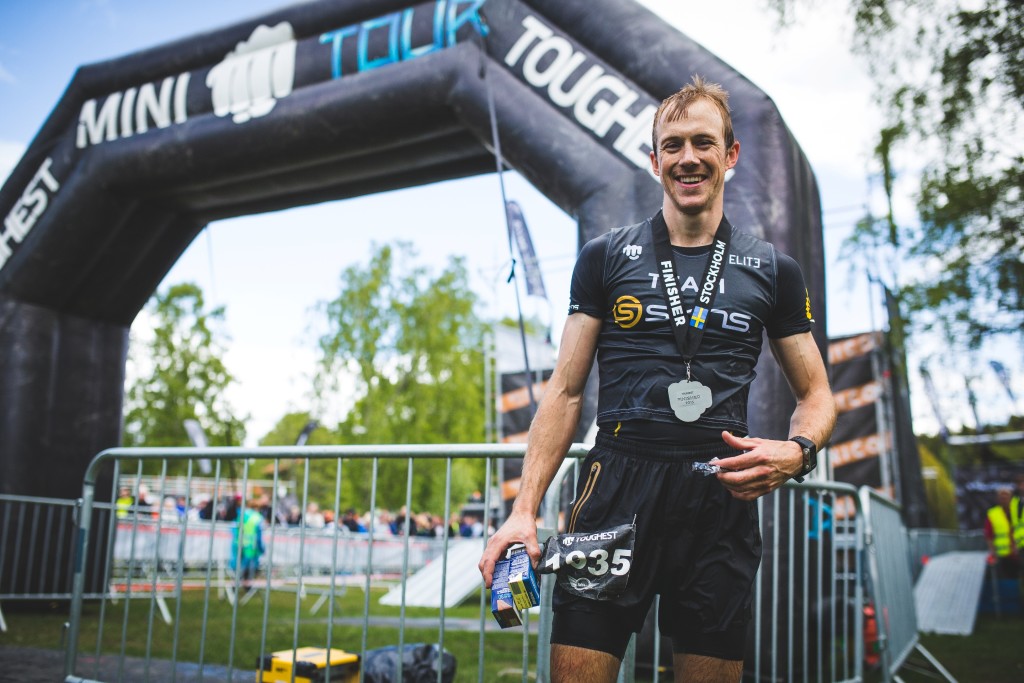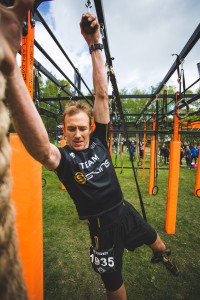 Obstacle Course Racing (OCR) is a rapidly growing sector of the running world. The trend of mixing running with strength to combat man-made Gladiator-style obstacles has, for many people, brought the fun into running.
Obstacle Course Racing (OCR) is a rapidly growing sector of the running world. The trend of mixing running with strength to combat man-made Gladiator-style obstacles has, for many people, brought the fun into running.
Its growth and popularity have seen it form its own World Championships, with thousands flocking from over the globe to compete. And, in recent months, there have been cries for it to become an Olympic sport.
With this in mind, Men’s Running’s digital editor, Tom Bristow, spoke to Jon Albon, this year’s OCR and Spartan World Champion:
So Jon, how did you get into OCR?
My first event was Tough Guy 2011. I saw an advertisement in a newspaper saying: “run, crawl, jump over fire and get really cold. Can you complete it?”. I figured it sounded like fun, so I’d see if I could. I had a lot of fun so I started to enter more, and I started to win them too. I just kept entering and winning them up until winning the World Championships last year.
That’s incredible! Were you a runner beforehand?
Not really, I used to run to keep fit, but my main sport was skate hockey (hockey on roller blades). But, I kind of just ran more and more because of obstacle course racing.
What’s more important in Obstacle Course Racing – Running? Strength? Or problem solving?
I definitely think running is the most important, it’s a running sport. If there’s a guy who can run 10K in 30 minutes and be OK at obstacles, and another guy who can run it in 60 minutes but be great at obstacles, the 30 minutes guy is going to win.
The strength side does come into play with events like Toughest, who have more technical obstacles. Or a “harder lane”. The harder lane will get you through quicker, but, the easy lane will likely be followed by another crawl or obstacle afterwards.
What does your weekly training look like?
At the moment, it’s probably something between 100-140K running, circuits for both strength and running, and bouldering or climbing as well. Bouldering is great, it doesn’t really feel like training because you’re having fun. But it’s building you up to have the best strength possible. The strength to weight ratio is really important.
There’s a lot of beefcakes out there who think that to do obstacle course racing you have to have huge biceps and run without a shirt. But you’re only really carrying extra weight.
Obstacle course racing is so varied any type of training really will help. Swimming, rowing, running, cycling. Whatever you want to do, it will help in some way.
 Do you run these events now for a living?
Do you run these events now for a living?
So I moved to Norway last summer to be with my girlfriend (now my wife), quitting my job in London while I was at it. I thought I’d give myself a two-month break to bed myself in, learn some Norweigen; moving countries was kind of a big deal.
During that time I trained for these two big races in America: The Spartan World Championships and Obstacle Course World Championships. Then I won both of them.
So I thought, well, why don’t I just not get a job and take a gap year. But, instead of going to Australia and drinking loads of beer, I’ll run and race and see if I can make enough money to scrape through.
I did, so I’m going to do the same again next year.
Alright for some! So what’s been your most enjoyable obstacle course race?
Toughest in Umea, Sweden. It had a 10-metre rope swing! I did a second lap just to run round with my friends.
OK, what about the most challenging?
I’d have to give that to the world’s Toughest Mudder, which I did a couple of weeks ago. It was so long. You had to see how many laps you could do in 24 hours!
And what about currently the best OCR out there?
I’d have to say Toughest, they’re furthering the sport of obstacle course racing more than anyone else. They’ve got live TV coverage to get everyone watching, and things like rules and penalties if you can’t do the obstacle. They also have harder and easier lanes. The harder lane is quicker, but the easier lane will usually be followed up by another obstacle meaning it’s longer!
Do you focus much on nutrition?
I think I have a balanced diet. I’m not a chemical minded person, I don’t take protein shakes or supplements or anything like that. The only thing I do have, is just a lot of Cliff Bars as I see that as extra food I can snack on during long runs. I think everyone has an idea of what’s good and not good for you so I just stick to that best I can.
I’m not a vegan, not a paleo, I’m just a normal guy that likes to eat food.
What’s peoples’ greatest misconception when it comes to Obstacle Course Racing?
I think people think it’s really difficult, whereas it’s not. From the outset, a lot of races have tried to market themselves as the toughest race in the world, but none of them actually are. They’re just a lot of fun to do, and they give you a great fitness level to aim for. It’s a fitness where you’re strong, fast and a healthy person, rather than being specialised in any one type of fitness.
 Finally, where do you see the future of OCR?
Finally, where do you see the future of OCR?
I’ve got no idea. A lot of people talk about the sport going into the Olympics, but I don’t know how much the sport would have to change to do it. It might detract from what the sport is.
Then there’s things like the X-Games, but, hopefully it just grows and gets more competitive and gets better and better. Which is what I see Toughest doing at the moment.
I’d like to see the race organisations work together a little bit more, because at the moment they’re all just fighting to make the most amount of money. Whereas there are very few who are working to envisage what Obstacle Course Racing will look like in the future.
Toughest is coming to the UK 23 April 2016.






